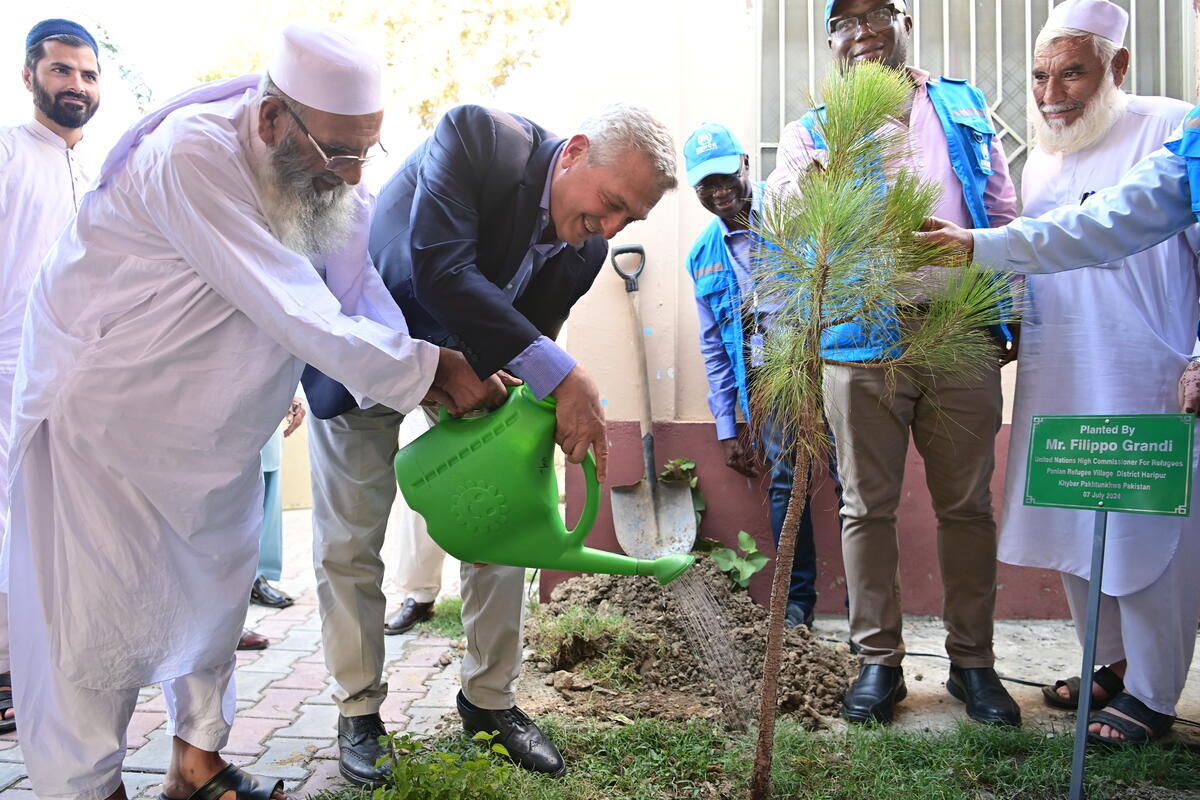Pakistan shuts border as 3,000 Afghan refugees wait near Killi Faizo site
Pakistan shuts border as 3,000 Afghan refugees wait near Killi Faizo site

Refugees at the Chaman border crossing, closed by Pakistan over the weekend.
CHAMAN, Pakistan, Jan. 7 (UNHCR) - With 3,000 people stranded on the edge of the Killi Faizo staging site near the Chaman border crossing, Pakistan reinforced security and closed the border with Afghanistan over the weekend.
The refugees, who began arriving from the southern Afghan town of Spin Boldak on New Year's Eve, said they were fleeing due to the lack of international aid and the fear of bombing raids as the search continued in southern Afghanistan for former Taliban leader Mullah Mohammed Omar and for Osama bin Laden.
"UNHCR appreciates the heightened security concerns at the border with Afghanistan, but we must insist that borders remain open for innocent people fleeing for safety - especially women, children, and the elderly - so they can be assisted properly in a safer area," the refugee agency said in a statement.
Previous calls by UNHCR to both Pakistan and Iran to open their borders to the refugees were also rejected by the two countries, who argue that the international community has given them little help in dealing with 3.5 million Afghans already in their territories.
Meanwhile, UNHCR was making contingency plans for significant numbers of Afghan refugees to return to their country this year, with tens of thousands having already made the trip homeward in recent weeks. In the past, the agency has cautioned against a massive, disorganised return of Afghans to their country, arguing that the omnipresence of landmines and the destruction caused by two decades of war make an unprepared return untenable.
"At this point, the return figure from Iran and Pakistan since the end of November is about 80,000 - 35,000 from Pakistan and 45,000 from Iran," UNHCR spokeswoman Maki Shinohara said. "Four to five thousand are returning from Pakistan on a daily basis."
The refugee agency said just over 140,000 Afghans returned to their country from Iran during 2001, 40,000 less than during the previous year.
Thus, while more refugees continue to return home than to arrive in Pakistan and Iran, UNHCR and other organisations have to deal with a new wave of uprooted people fleeing southern and eastern Afghanistan because continuing insecurity has prevented them from distributing aid in those areas.
On Sunday UNHCR opened its eighth border camp for refugees in Pakistan, with more than 1,000 uprooted people entering the Shelman camp in the country's North-West Frontier Province. The Afghans were relocated from the makeshift Jalozai site on the outskirts of Peshawar, bringing to 17,000 the number of people transferred from the squalid camp to more adequate sites.








